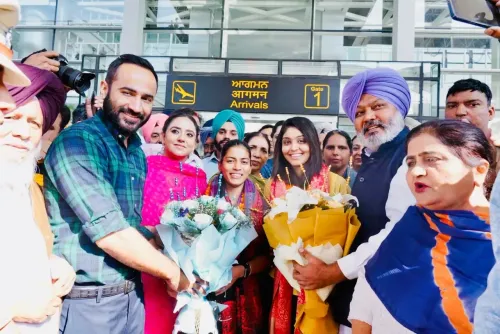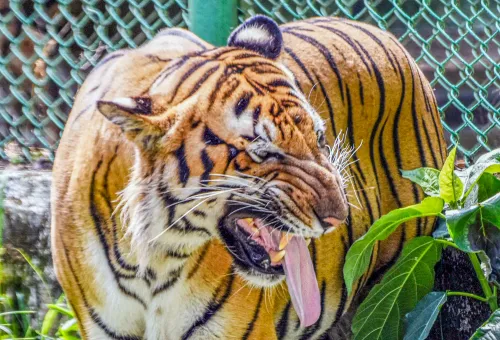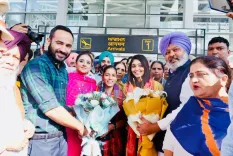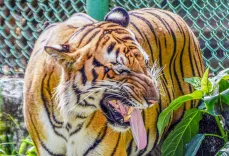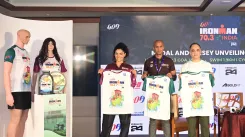Is the Centre Advancing Global Ecolabeling for Lakshadweep Tuna?
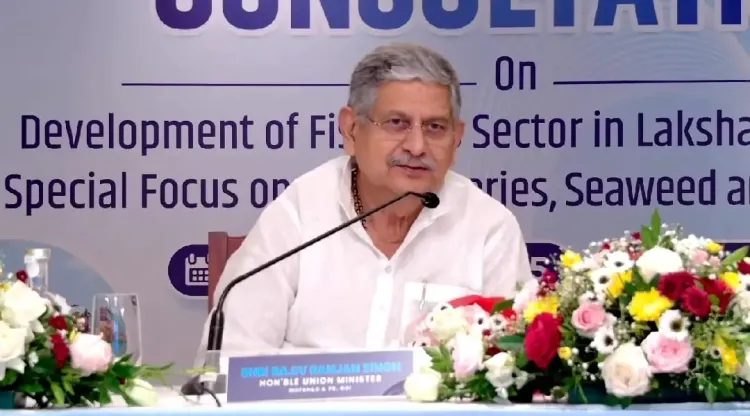
Synopsis
Key Takeaways
- Centre's initiative to obtain ecolabel for Lakshadweep tuna fisheries.
- Sustainable fishing practices utilized in tuna harvesting.
- Increased market access for local fishers through premium pricing.
- Potential growth in seaweed and ornamental fisheries.
- Collaboration with coastal states for sustainable fishing laws.
Kochi, Sep 20 (NationPress) In a pivotal move to bolster India's seafood exports, the Centre is actively pursuing the attainment of a globally recognized ecolabeling certification for the tuna fisheries in Lakshadweep, which utilize traditional pole-and-line and hand-line fishing techniques.
Union Fisheries Minister Rajiv Ranjan Singh remarked on Saturday that ecolabeling and traceability represent the forthcoming significant changes in the fisheries sector.
"Tuna from Lakshadweep is harvested using sustainable fishing methods that have a negligible effect on the marine ecosystem. With ecolabeling, this product can tap into premium international markets, leading to higher prices and directly benefitting the artisanal fishers in the islands," he pointed out.
The Minister was speaking at a consultative meeting in Kochi centered on the development of Lakshadweep's fisheries sector, particularly focusing on tuna, seaweed, and ornamental fisheries.
He emphasized that ecolabeling would not only enhance income levels but also safeguard traditional fishing livelihoods.
Union Minister Singh also brought attention to the significant prospects of seaweed farming and ornamental fisheries in Lakshadweep, highlighting that these sectors could offer extensive opportunities for women and community-driven enterprises.
Furthermore, he stated that the Centre is developing legal frameworks to promote sustainable fishing in India's Exclusive Economic Zone (EEZ) and High Seas, in collaboration with coastal states and Union Territories.
The meeting saw participation from representatives of NITI Aayog, Marine Products Export Development Authority (MPEDA), Indian Council of Agricultural Research (ICAR) institutes, and NABARD. It was co-hosted by the National Fisheries Development Board (NFDB) and the Fishery Survey of India (FSI).
Lakshadweep Administrator Praful Patel, while addressing the assembly, noted that the islands' 4,000 sq km lagoon regions present tremendous potential for seaweed cultivation.
"Lakshadweep can position itself as a global center for seaweed farming, opening new pathways for livelihood for island communities," he asserted.
Union Minister of State George Kurian and Union Fisheries Secretary Abhilaksh Likhi also spoke during the session.
Earlier, Likhi engaged with fishermen at the Cochin Fishing Harbour and highlighted the necessity of incorporating modern post-harvest technologies. "The implementation of cold chains, effective packaging, and value-added product units will minimize waste, elevate quality, and ensure better prices for fishers," he stated.
While assessing modernization efforts at Thoppumpady harbour, he instructed port officials to adhere to strict timelines for project completion.

